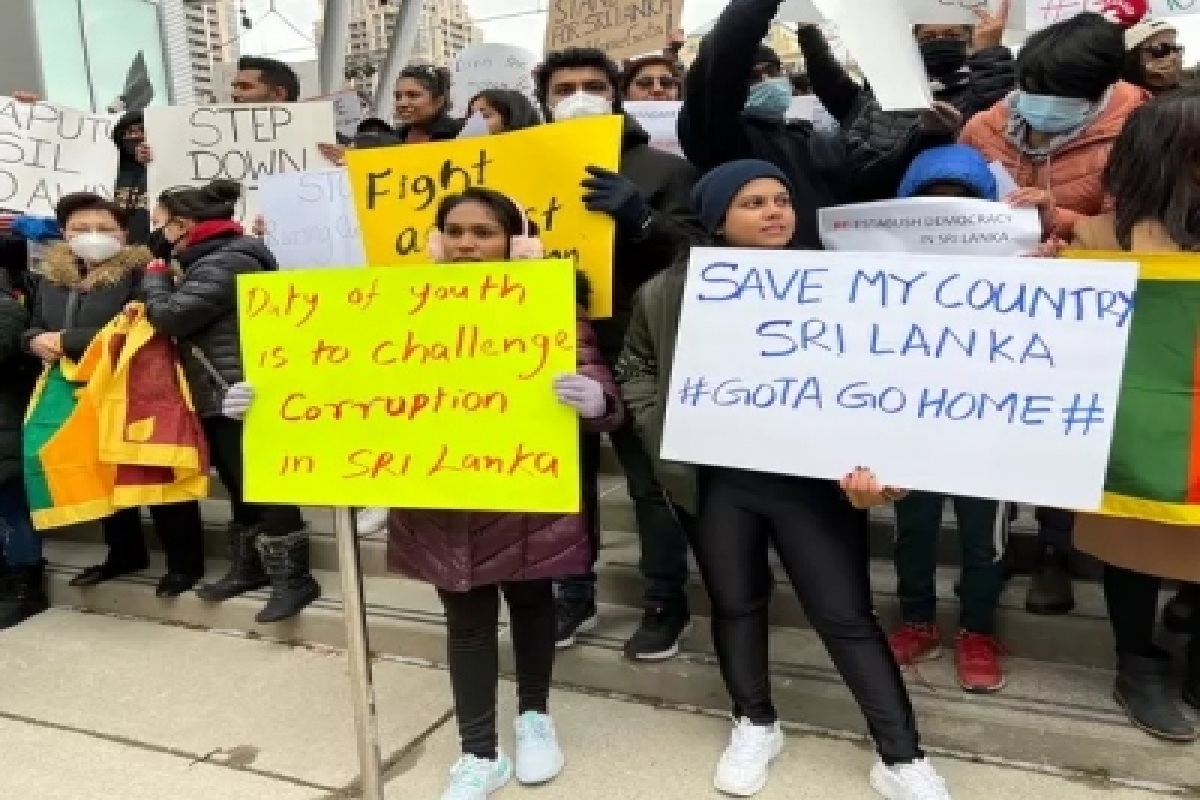Sri Lanka to host India and South Africa in women’s tri-nation series
Sri Lanka will host a ti-nation women’s ODI series, involving India and South Africa during the months of April and May.
Sri Lanka survives on a direly stuttering economy, indeed the fallout of economic mismanagement, the Covid-19 pandemic, and ballooning energy costs following Russia’s invasion of Ukraine.

Photo: IANS
To summon a variant of a Shakespearean tragedy, two tales are told as a prologue to the “swelling act” of the Sri Lankan theme. The first was the appointment of Ranil Wickremesinghe as the impoverished nation’s Prime Minister for the fifth term. The second has been the ban imposed on his predecessor, Mahinda Rajapaksa, and 15 others from overseas travel in view of investigations against them for the mortal attacks on peaceful anti-government protestors in Colombo this week. Contextualised with the economic blight, Mr Wickremesinghe has indubitably succeeded to a depleted inheritance. The current crisis is his greatest challenge yet. As he sets about to helm a coalition government, it will be imperative to address the financial chaos and heal the political ruptures. “We are facing a crisis and we have to get out it,” was his terse message to the media after the swearing-in ceremony. He has forged relationships with India and China, the key investors and lenders who vie for influence over the island nation that lies along busy shipping routes linking Asia to Europe.
Sri Lanka survives on a direly stuttering economy, indeed the fallout of economic mismanagement, the Covid-19 pandemic, and ballooning energy costs following Russia’s invasion of Ukraine. The country is somehow surviving on inadequate fuel and essential medicines, not to forget the daily power blackouts. President Gotabaya Rajapaksa, whose elder brother, Mahinda, was replaced by Wickremesinghe, has called nationwide curfews and given sweeping powers to security forces to shoot anyone involved in looting or putting people’s lives at risk. His strategy perhaps appears to be decidedly drastic considering the general privation. Nor for that matter can the President evade responsibility for the economic collapse, a creation of his family. Mahinda Rajapaksa, who resigned on Monday, has gone into hiding on a naval base.
Advertisement
The people, by and large, have grown increasingly frustrated over disruptions to normal life. That Sri Lanka has hit the bottom economically is the general refrain. It is imperative for the new coalition to devise a prescription that will heal the torpid economy. The value of the Sri Lankan rupee, most particularly in relation to the dollar, must of necessity be restored. The people will have to access life’s essentials ~ food, medicines and cooking gas ~ and at affordable rates. The economy, in a word, cries out for a drastic overhaul, with the new administration riveted to the welfare of the populace and not to the preservation of the elite. Monday witnessed a phase of peaceful demonstrations that erupted into violence after supporters of Mahinda Rajapaksa attacked an anti-government protest camp in Colombo. Days of violent reprisals against government personalities aligned to the powerful Rajapaksa clan followed. Sri Lanka needs welfare ~ not pop ~ economics for survival.
Advertisement
Advertisement